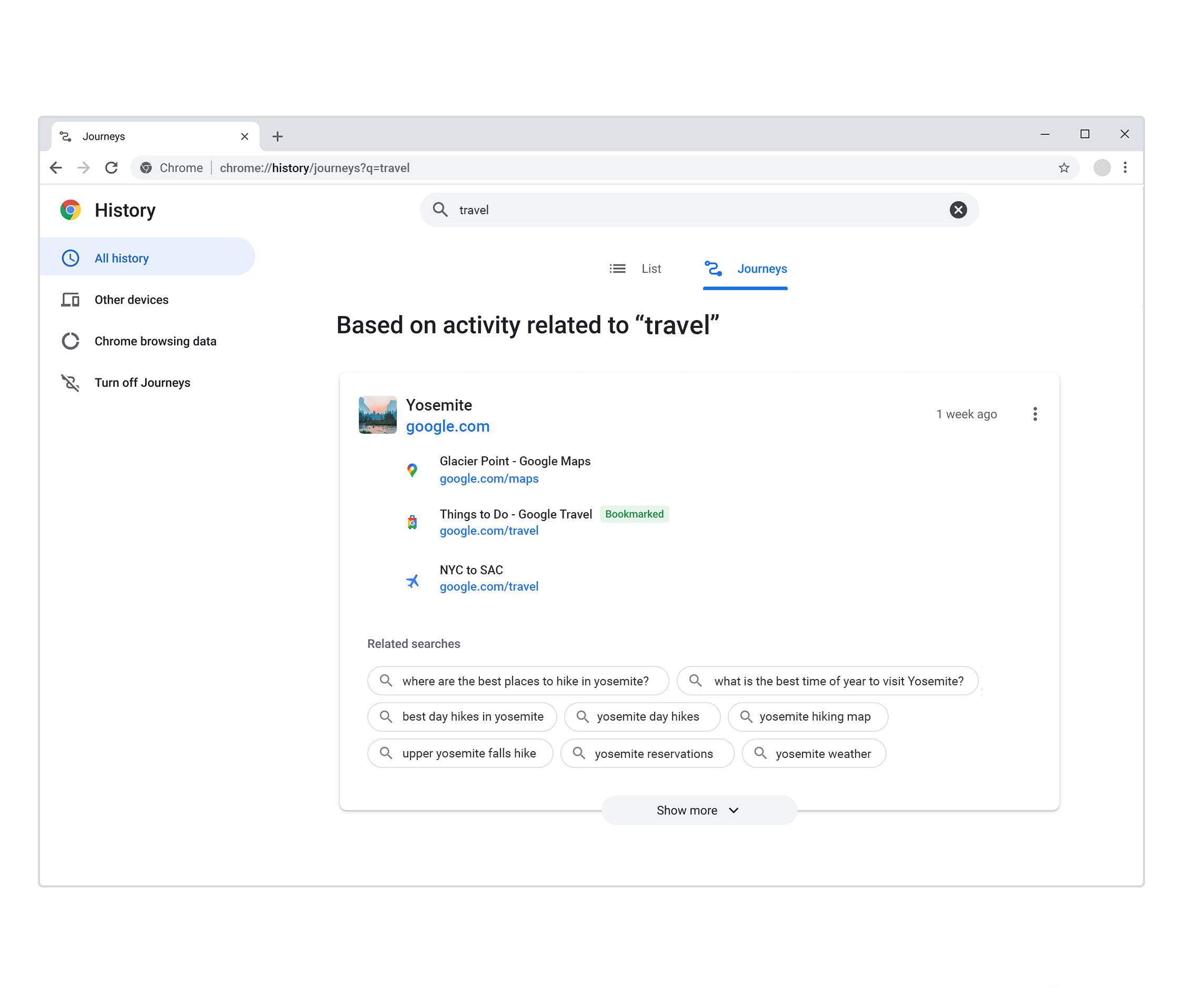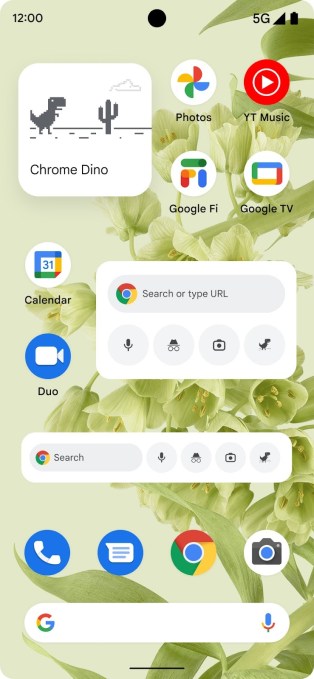Google today announced a couple of updates to Chrome that bring, among other things, a new way to resume your past searches in the browser.
This new feature, dubbed “Journeys,” is now rolling out to Chrome on the desktop and will smartly group past searches by topic. The browser will automatically highlight this new experience when you start searching for a related term, or you can head diretly to the new Chrome History Journey page once it’s enabled on your browser.
“Journeys will even take into account how much you’ve interacted with a site to put the most relevant information front and center, while also bringing you helpful suggestions on related searches you may want to try next,” Yana Yushkina, a product manager on the Chrome team, explains in today’s announcement.
If you’ve ever started researching something and then had to abort that to work on another project, you know how hard it is to find your way back to the sites you previously visited. Any browser’s history list quickly becomes unwieldy after a while and until now, no browser vendor has really given it a lot of attention. In an increasingly competitive browser market, we’ll likely see vendors continue to innovate in exactly these kinds of areas that were long left untouched.
Google stresses that users can turn this feature off completely if they are uncomfortable with the browser building these clusters for them. Google says Journeys will only group your history on your device and the clusters are generated on the device. Nothing is saved to your Google account.
These topics, by the way, are completely unrelated to Topics, Google’s latest proposal to replace cookies for advertising purposes. Those Topics group the sites you visited into clusters around about 300 pre-set topics and there’s clearly some overlap in basic functionality here, but a Google spokesperson confirmed to me that they are not connected at all.
This new feature is now rolling out across operating systems in English, German, Spanish, French, Italian, Dutch, Portuguese and Turkish.
In addition to Journeys, Google is also introducing more Chrome Actions in the browser. These are features that you can access by using the right kinds of trigger words in the address bar. Some of the new actions include “Manage settings,” “Customize Chrome,” “View your Chrome history,” “Manage accessibility settings,” “Share this tab” and, maybe most importantly, “Play Chrome Dino game.” Fun, but I’m not sure how many people really want to type this much when a few clicks will usually get you to the same destination faster.
For mobile users, Google is introducing a few new Chrome-related widgets on Android today. There’s one to get right to the Dino game, for example (I sense a theme here), while others mostly focus on kicking off a search from your home screen, be that through text, voice search or the visual Lens search feature.


